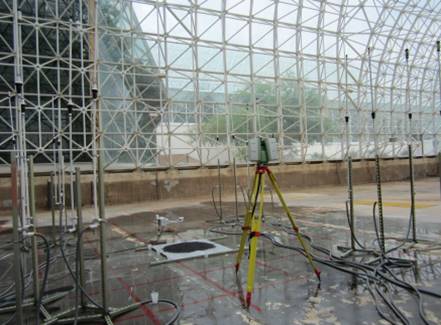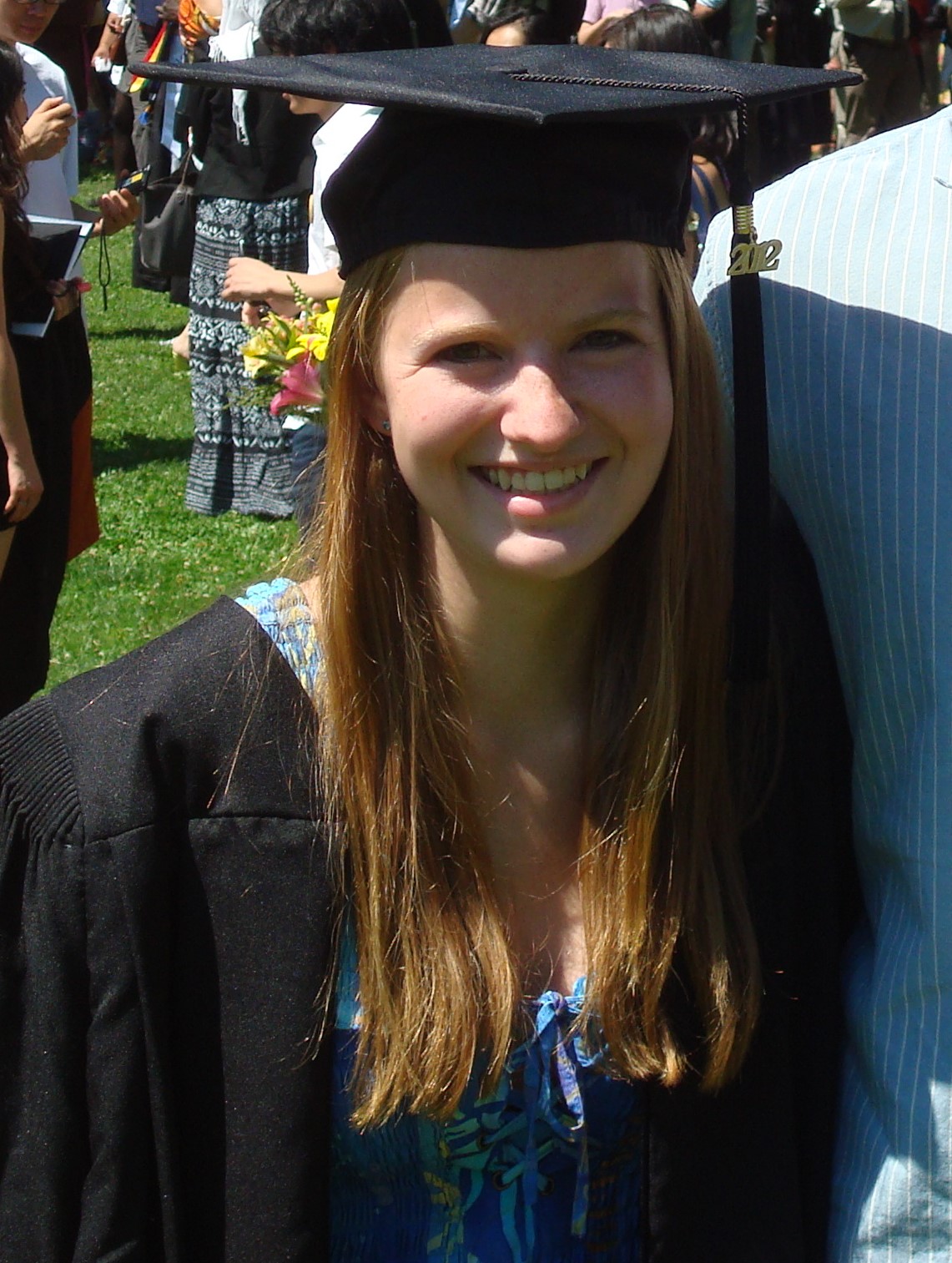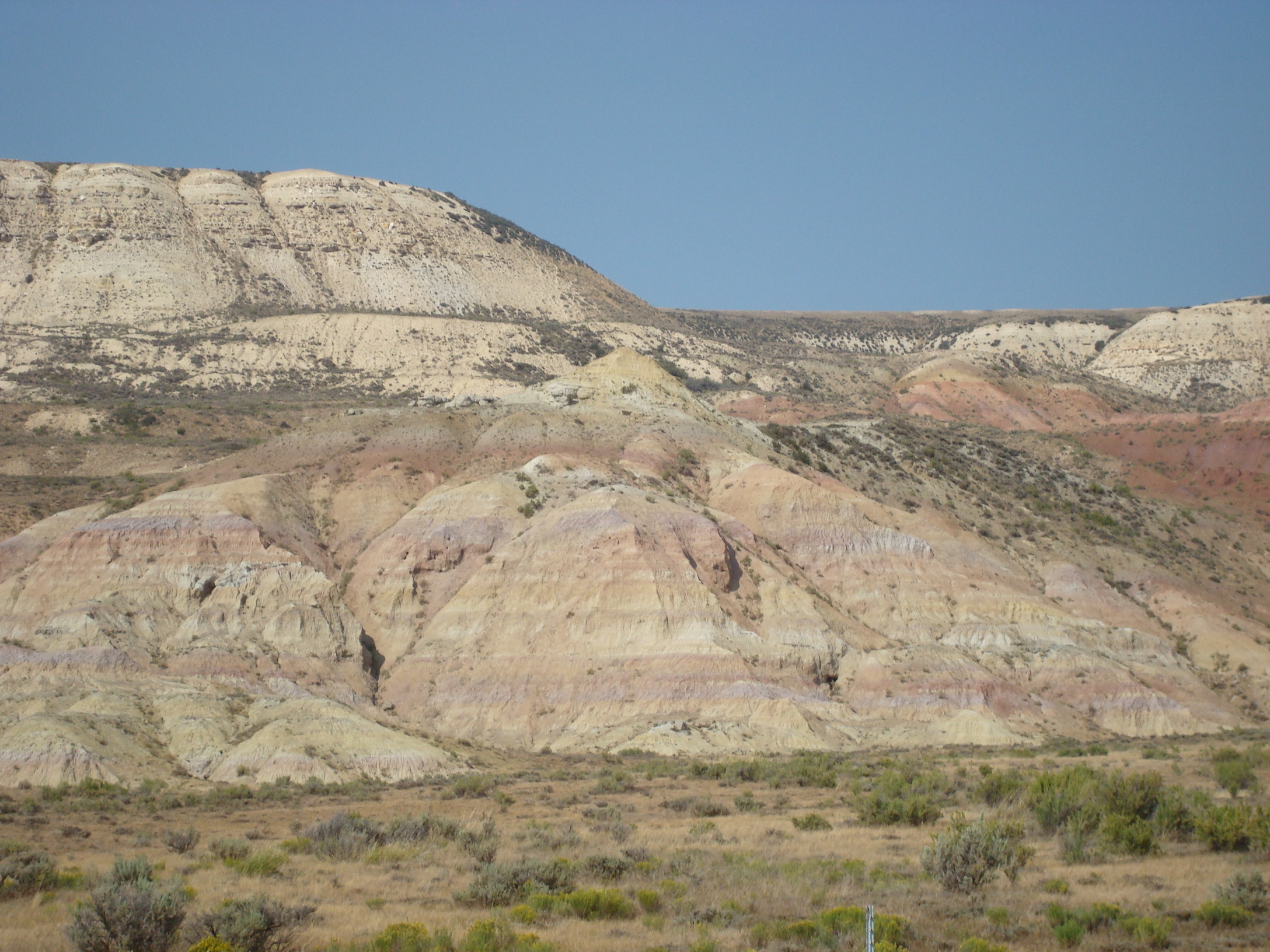I started college with a (very) vague idea of what I wanted to be when I grew up and didn’t have any experience in my chosen field when I started. I knew that I was interested in environmental science, water resources, and climate change, but I didn’t know that I was going to be a geology major until I took my first geology class sophomore year. After that, I leapt right in.
My jobs at Carleton College started out completely unrelated to the courses that I was taking. I worked as a technical assistant for the computing center, helping students install their own wireless routers and PlayStations. I managed the varsity volleyball team, though personally I played softball. I was the person who sat in the school’s art museum and greeted you when you came in to see the gallery.

An experimental setup in Arizona at Biosphere 2 (Megan Clendenon)
It wasn’t until the summer after my junior year that I managed to score a position actually related to geology. I applied for and was accepted to an REU, or Research Experience for Undergraduates, through the National Science Foundation. I had extra motivation: Carleton requires all students to complete a comprehensive project before graduating. Basically, if I didn’t find a summer position that would give me a thesis project, I was up a creek.
Luckily, there were no creeks to be found. I was one of ten students who were accepted to this experience at Biosphere 2 in Oracle, Arizona. After I finished finals, I shipped off for the summer. I worked with two professors, a few graduate students, and several other researchers on a project in which I was trying to determine how rainfall patterns drive erosion on a microscopic scale. Really interesting stuff if you like dirt.

Carleton College graduation, June 2012 (Megan Clendenon)
I completed the project over the course of my senior year, passed, and eventually graduated. Graduation is a whole other beast. For four years, I had the privilege of knowing what I was going to be doing every trimester and the security that came with an on-campus job. After graduation though, the game changed. I knew that I didn’t want to go straight into graduate school. I was burnt out with coursework and didn’t have a solid idea of what I wanted to do. So once again, I was on the hunt for jobs.
Teach for America resulted in an interview that didn’t pan out, probably because the interviewer could tell that I wasn’t passionate enough. I sent panicky emails to my parents and applied for jobs at a lot of local museums. I tried for a position at an engineering company in Minneapolis that I was clearly unqualified for; they didn’t even call me back. And then I came across the Geological Society of America’s GeoCorps website. Bingo! They offer temporary positions to students and recent graduates at national parks and monuments throughout the country.

Fossil Butte National Monument in Wyoming (Megan Clendenon)
I applied for three and was accepted to one. The relief was palpable. After graduation I spent a month at home, and then my family helped me move out to Wyoming. My official title was Public Education Paleontologist, but really I was something like a park ranger. I worked for Fossil Butte National Monument greeting visitors, explaining the story of Fossil Lake, preparing and cleaning fossils, quarrying for fossils, and hiking around the trails. On really fun days I was allowed to lead tours for elementary school field trips. On slow days I put stamps and addresses on postcards.
Of course, the temporary position ended. I moved back home and worked as a waitress while I applied to graduate school. It wasn’t full of glory, but the money was surprisingly good, and it gave me a chance to realize that going back to school was definitely the right option for me.

Fossil Butte National Monument in Wyoming (Megan Clendenon)
The point of this whole story is this: There ARE jobs out there that relate to your field. They may be hard to find. That just means your Google skills will drastically improve. You may experience a lot of rejections. Consider it an opportunity to toughen up and make your next application more competitive. Applying for jobs, fellowships, and internships is not a particularly fun process. Think of it as an exercise in patience and commitment.
You may end up having to work jobs that are below your education level or have nothing to do with your degree. That’s okay. Each job has something valuable to teach you, be it a skill or something about yourself and what you want. Working a variety of jobs can help you decide what you like and don’t like about a position, which can help you narrow down your applications more in the future. The job market can be a tough egg to crack, particularly when you’re younger and less experienced than your competition, but once you get started, you’ll start to find opportunities where you least expect them.
-
Summer Side Gigs for Teachers
-
Fresh Grads: Tips to Jump-Start Your Job Search
-
Things You’ll Learn from Even the Most Menial Summer or After-School Job
-
Lessons You Will Learn after Graduating from College
-
Six Do’s and Don’ts for Your First Day on a New Job
-
Claves para una entrevista laboral
-
What Happens after You Receive Your Bachelor’s Degree
-
Six Inspiring Reasons You Should Pursue a STEM Major
-
Public Speaking: How to Use Your Voice to Climb to Success
-
Six Reasons Why a Student May Drop out of Medical School
-
The Five Most Versatile Majors (and Why It’s Okay if Your Career Isn’t Related to Your Degree)
-
How to Turn Your Hobby into a Résumé Boost

